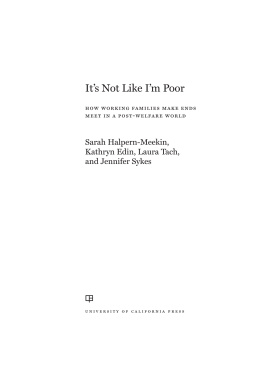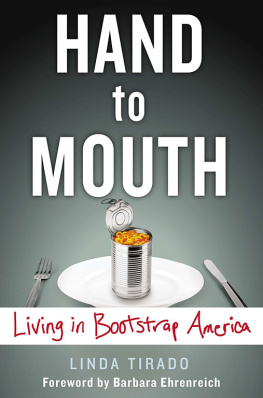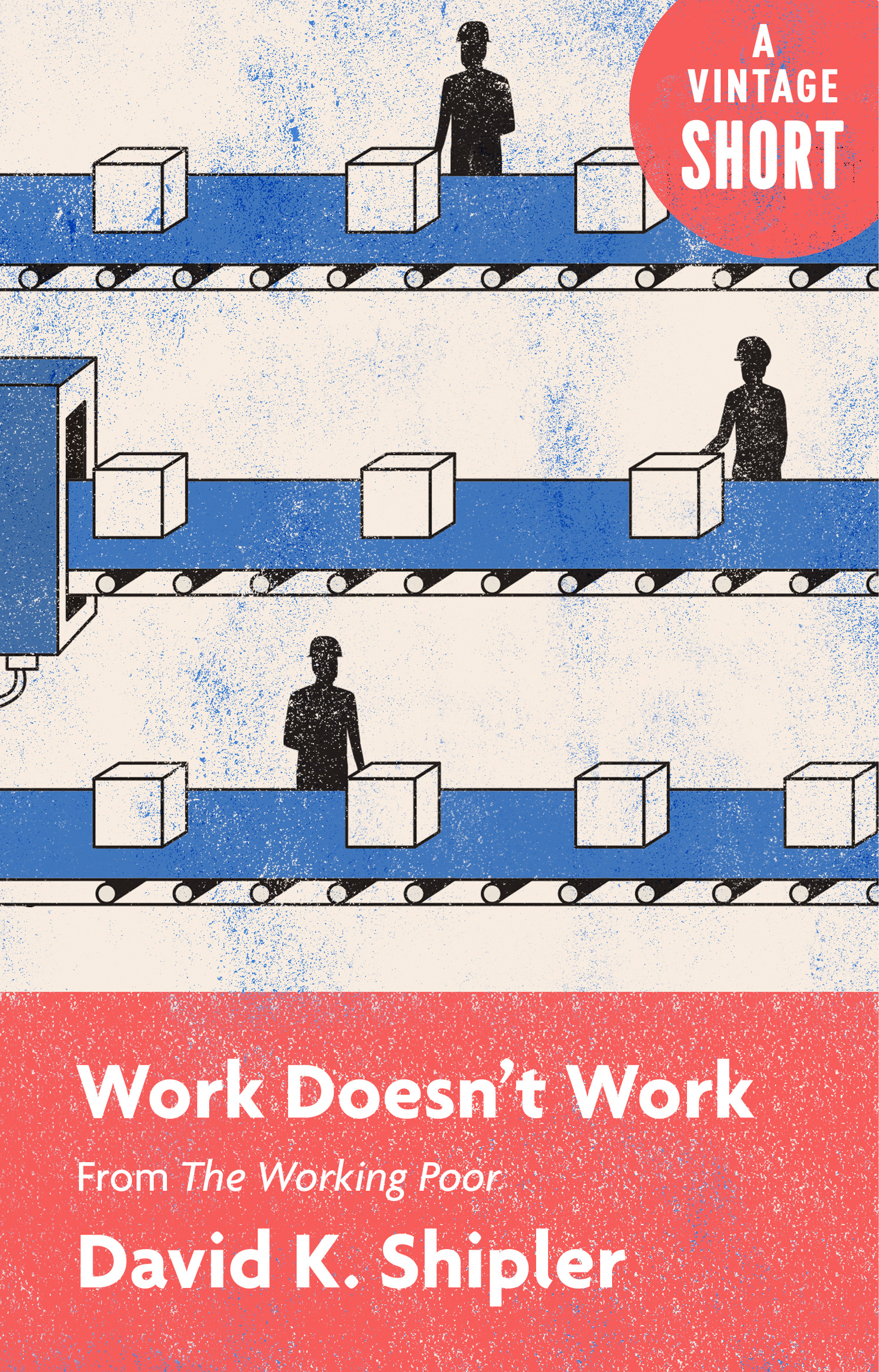by David K. Shipler
All rights reserved. Published in the United States by Vintage Books, a division of Penguin Random House LLC, New York, and in Canada by Random House of Canada, a division of Penguin Random House Canada Limited, Toronto. Originally published in hardcover in slightly different form as part of The Working Poor in the United States by Alfred A. Knopf, a division of Penguin Random House LLC, New York, in 2004, and subsequently published by Vintage Books, a division of Penguin Random House LLC, New York, in 2005.
Vintage and colophon are registered trademarks of Penguin Random House LLC.
Introduction
AT THE EDGE OF POVERTY
Tired of wishes,
Empty of dreams
Carl Sandburg
The man who washes cars does not own one. The clerk who files cancelled checks at the bank has $2.02 in her own account. The woman who copy-edits medical textbooks has not been to a dentist in a decade.
This is the forgotten America. At the bottom of its working world, millions live in the shadow of prosperity, in the twilight between poverty and well-being. Whether youre rich, poor, or middle-class, you encounter them every day. They serve you Big Macs and help you find merchandise at Wal-Mart. They harvest your food, clean your offices, and sew your clothes. In a California factory, they package lights for your kids bikes. In a New Hampshire plant, they assemble books of wallpaper samples to help you redecorate.
They are shaped by their invisible hardships. Some are climbing out of welfare, drug addiction, or homelessness. Others have been trapped for life in a perilous zone of low-wage work. Some of their children are malnourished. Some have been sexually abused. Some live in crumbling housing that contributes to their childrens asthma, which means days absent from school. Some of their youngsters do not even have the eyeglasses they need to see the chalkboard clearly.
This book is about a few of these people, their families, their dreams, their personal failings, and the larger failings of their country. While the United States has enjoyed unprecedented affluence, low-wage employees have been testing the American doctrine that hard work cures poverty. Some have found that work works. Others have learned that it doesnt. Moving in and out of jobs that demand much and pay little, many people tread just above the official poverty line, dangerously close to the edge of destitution. An inconvenience to an affluent familyminor car trouble, a brief illness, disrupted child careis a crisis to them, for it can threaten their ability to stay employed. They spend everything and save nothing. They are always behind on their bills. They have minuscule bank accounts or none at all, and so pay more fees and higher interest rates than more secure Americans. Even when the economy is robust, many wander through a borderland of struggle, never getting very far from where they started. When the economy weakens, they slip back toward the precipice.
Millions have been pushed into a region of adversity by federal welfare reforms time limits and work mandates. Enacted in 1996 during an economic boom, the reform is credited by many welfare recipients for inducing them to travel beyond the stifling world of dependence into the active, challenging, hopeful culture of the workplace. They have gained self-confidence, some say, and have acquired new respect from their children. Those with luck or talent step onto career ladders toward better and better positions at higher and higher pay. Many more, however, are stuck at such low wages that their living standards are unchanged. They still cannot save, cannot get decent health care, cannot move to better neighborhoods, and cannot send their children to schools that offer a promise for a successful future. These are the forgotten Americans, who are noticed and counted as they leave welfare, but who disappear from the nations radar as they struggle in their working lives.
Breaking away and moving a comfortable distance from poverty seems to require a perfect lineup of favorable conditions. A set of skills, a good starting wage, and a job with the likelihood of promotion are prerequisites. But so are clarity of purpose, courageous self-esteem, a lack of substantial debt, the freedom from illness or addiction, a functional family, a network of upstanding friends, and the right help from private or governmental agencies. Any gap in that array is an entry point for trouble, because being poor means being unprotected. You might as well try playing quarterback with no helmet, no padding, no training, and no experience, behind a line of hundred-pound weaklings. With no cushion of money, no training in the ways of the wider world, and too little defense against the threats and temptations of decaying communities, a poor man or woman gets sacked again and againbuffeted and bruised and defeated. When an exception breaks this cycle of failure, it is called the fulfillment of the American Dream.
As a culture, the United States is not quite sure about the causes of poverty, and is therefore uncertain about the solutions. The American Myth still supposes that any individual from the humblest origins can climb to well-being. We wish that to be true, and we delight in examples that make it seem so, whether fictional or real. The name of Horatio Alger, the nineteenth-century writer we no longer read, is embedded in our language as a synonym for the rise from rags to riches that his characters achieve through virtuous hard work. The classic immigrant story still stirs the American heart, despite the countrys longstanding aversion to the arrival of the wretched refuse at the golden door, in the words etched on the Statue of Liberty.
The myth has its value. It sets a demanding standard, both for the nation and for every resident. The nation has to strive to make itself the fabled land of opportunity; the resident must strive to use that opportunity. The ideal has inspired a Civil Rights Movement, a War on Poverty, and a continuing search for ways to ease the distress that persists in the midst of plenty.







